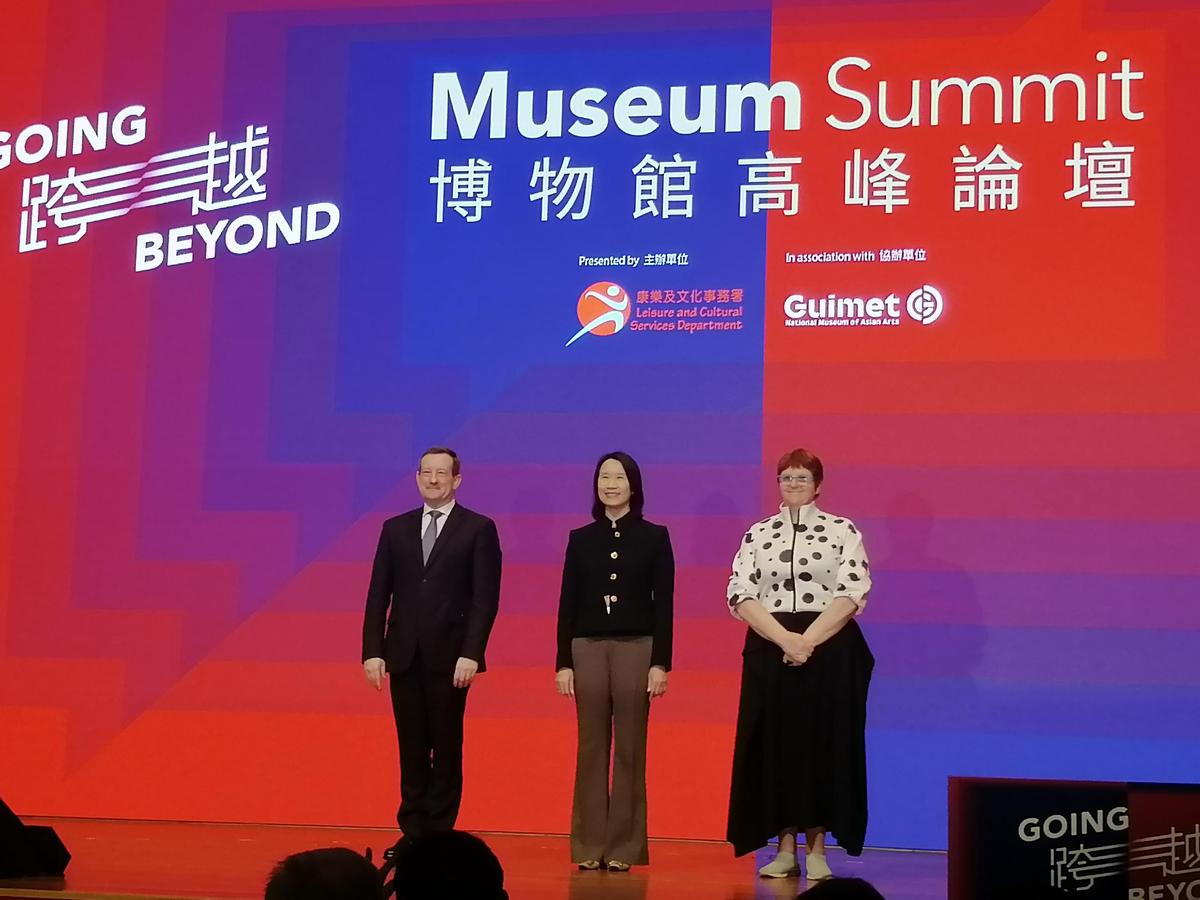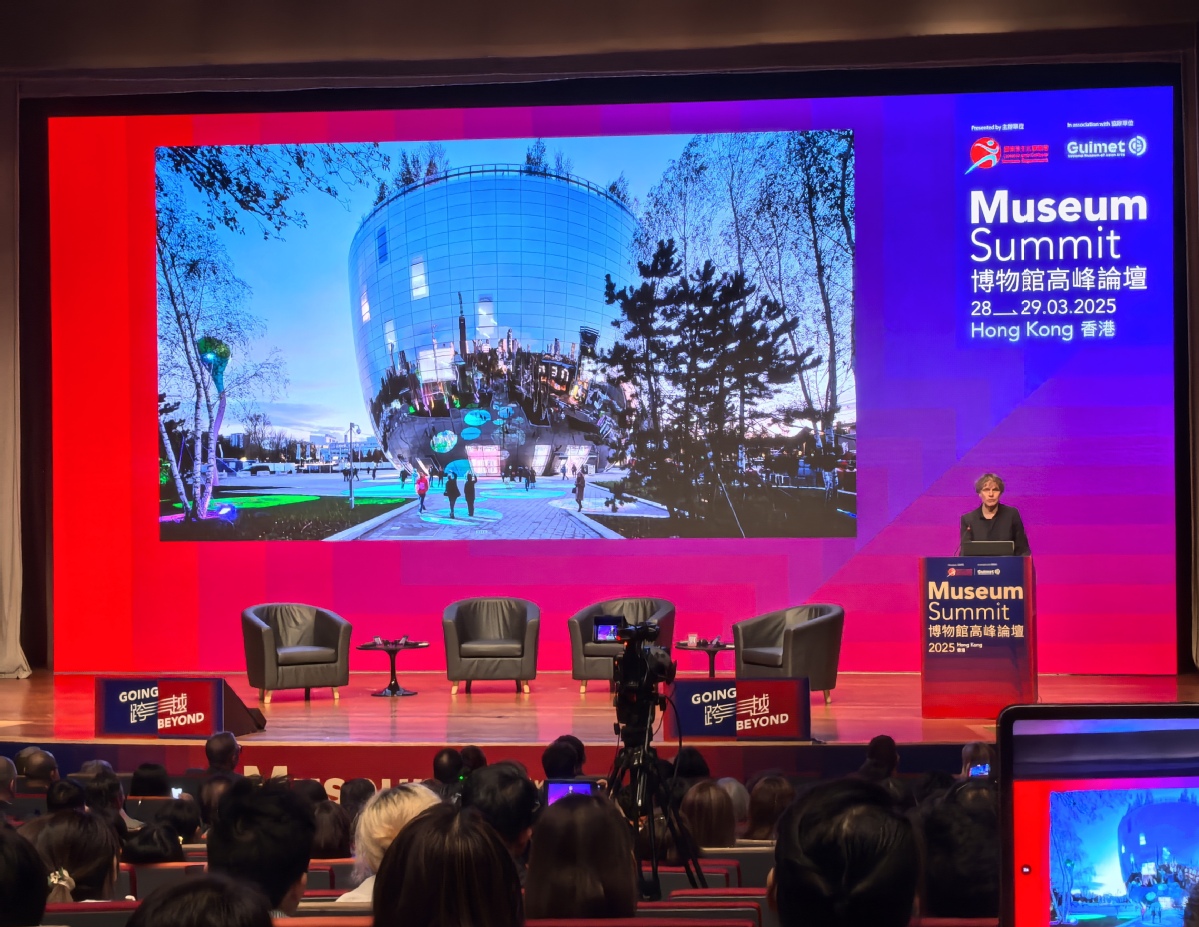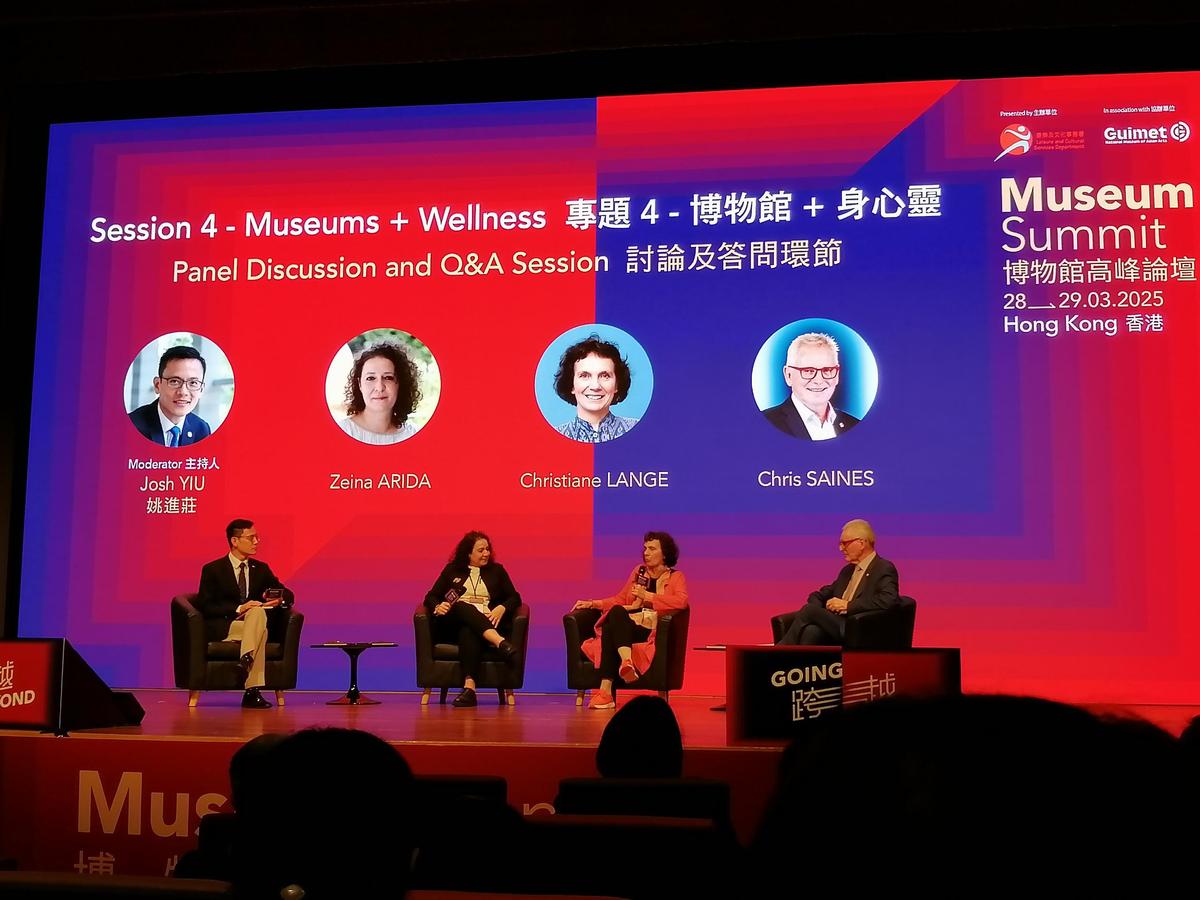
The future of museums could see more wellness and sustainable programs integrated into their functionality and platforms as healthy lifestyle and mindful living grow increasingly important in societies amid increasing challenges in security and spaces, Museum Summit 2025 heard in Hong Kong on Saturday.
The list of prestigious speakers who flew from different parts of the world from France, the United States, Australia, Qatar, Germany, Italy, Hungary and the Netherlands, to name but a few, were part of the "Museums + Wellness" sessions held on the second and final day of the Museum Summit conducted at the Hong Kong Convention and Exhibition Center in Wan Chai.
Each speaker was first given minutes to share the challenges and best practices from programs curated from their respective countries and how museums continue to play an integral role in society despite the presence of wars, economic crises, geopolitical tensions and modernization. A short panel was followed after all the experts were done with their presentations.
READ MORE: China-US art and cultural ties enhanced through dialogue session
Speakers from Germany, Australia, the US and Anhui in the Chinese mainland shared how they have programs for people with dementia and programs to nurture children's mindfulness of their surroundings. The topic on making art accessible to people with disabilities was also a hot topic.
Speakers from Qatar and Turkiye shared how they were looking for ways to preserve as well as design their museums to make them more welcoming to their public.

When asked whether museums should be branded as a center for wellness, Zeina Arida, director at Mathaf: Arab Museum of Modern Art in Qatar said she does not think museums need a rebranding as "what we want is that museums are part of our daily lives".
"It's part of our lives, so why would we need to explain we are doing this for awareness? We are succeeding, visitors would just want to come back," said Arida.
Christiane Lange, director at Staatsgalerie Stuttgart in Germany, said she believes museums should be made "more public" because "it's our duty" and that it costs a lot when they do special programs with small groups of visitors.
She said such groups may not have many returns, budget-wise, but society wants museums to be present, to educate.
"We have to be advertising that more to get more response in a sense that the relevance of museums are always under discussions," said Lange.
READ MORE: Hong Kong kicks off Rugby Sevens, Art Basel in tourism push
"We are doing so many important things for the society, and therefore, we should be really proud to bring it out; just balance it. We save money when we go out to the museums. There are studies that prove that for the 1 Euro you spend in the museum, you save 3 Euros in the healthcare system," she added.
Chris Saines, director at Queensland Art Gallery | Gallery of Modern Art in Australia, said the important thing coming toward museums are "social prescriptions" and that medical professionals have been prescribing visits to the museums and recommending participation in special museum programs like the dementia programs.
He said about 4,000 participants have worked with them in their programs.
"It's a cost we found easily through sponsorship. Because millions may have parents or people affected with dementia. We all have aging communities right across the world and so I think that there's a lot of power in this," said Saines.
Celenk Bafra, artistic director, Istanbul Museum of Modern Art in Turkiye, said the role and value of museums have always been important. But apart from preserving artifacts and documenting history, museums "have responsibilities to societies, and to the planet in general, to respond to evolving demands and needs of society".

At the Istanbul Museum of Modern Art, they have come up with "tools for healing" as their museum expands and that museums "need to be nurturing", including for the future generations.
"We aim to offer a safe space of social interaction, something that reflects ethos of museums," said Bafra.
Giovanni Carlo Federico Villa, director of Palazzo Madama in Italy, presented a food for thought in "legacy or heritage?". He also introduced the various programs and spaces at Palazzo Madama, including having a Medieval Botanical Garden for those with museum fatigue. He said said the pursuit of happiness was one of the aspirations and basis of human existence.
"Surrounding yourself with art is good for fighting everyday stress," he said.
Elizabeth Escamilla, assistant director for Education and Public Programs at J. Paul Getty Museum in the United States, said historically, museums "have always been responsive".
She noted that museums founded in the 1700s "are not the same anymore".
READ MORE: A cultural hub in the making
"Museums are living, breathing, wonderful spaces and they need to expand and change based on what society requires them to be," said Escamilla, as she shared that the museum aims to have more programs on wellness as it expands, following the threat from the Southern California wildfires earlier this year.
"I think if we expect museums to continue into the future and not be replaced by their (wellness) kinds of spaces, then we need to be responsive to what's required to evolve and change and stretch ourselves," she added.
Lei Xiufo, director at Anhui Provincial Museum in China, noted that in a fast-changing future, pushed by artificial intelligence and technological advancements, they could cause some loneliness and stress. Museums, he said, could play a better role, also in nurturing one's spirituality.
Lei said from sightseeing to educational, the different programs of museums meant that we were "now in an era of audience segmentation" so that there were more reasons to "offer services and take care of them" and their different needs. Their museums have also rolled out programs for children such as an opportunity to make their cultural relics to calligraphy.
But while audience segmentation had been taking place, he said, they were also now switching to accessibility for those with disabilities.
He said Anhui Provincial Museum has also become one of the 14 museums in the Chinese mainland that has joined a barrier-free museum project. They are also part of alliance to help give opportunities for people with disabilities.
"We are duty-bound to play a better role," said Lei. "Museums are the halls of human culture," he added.


